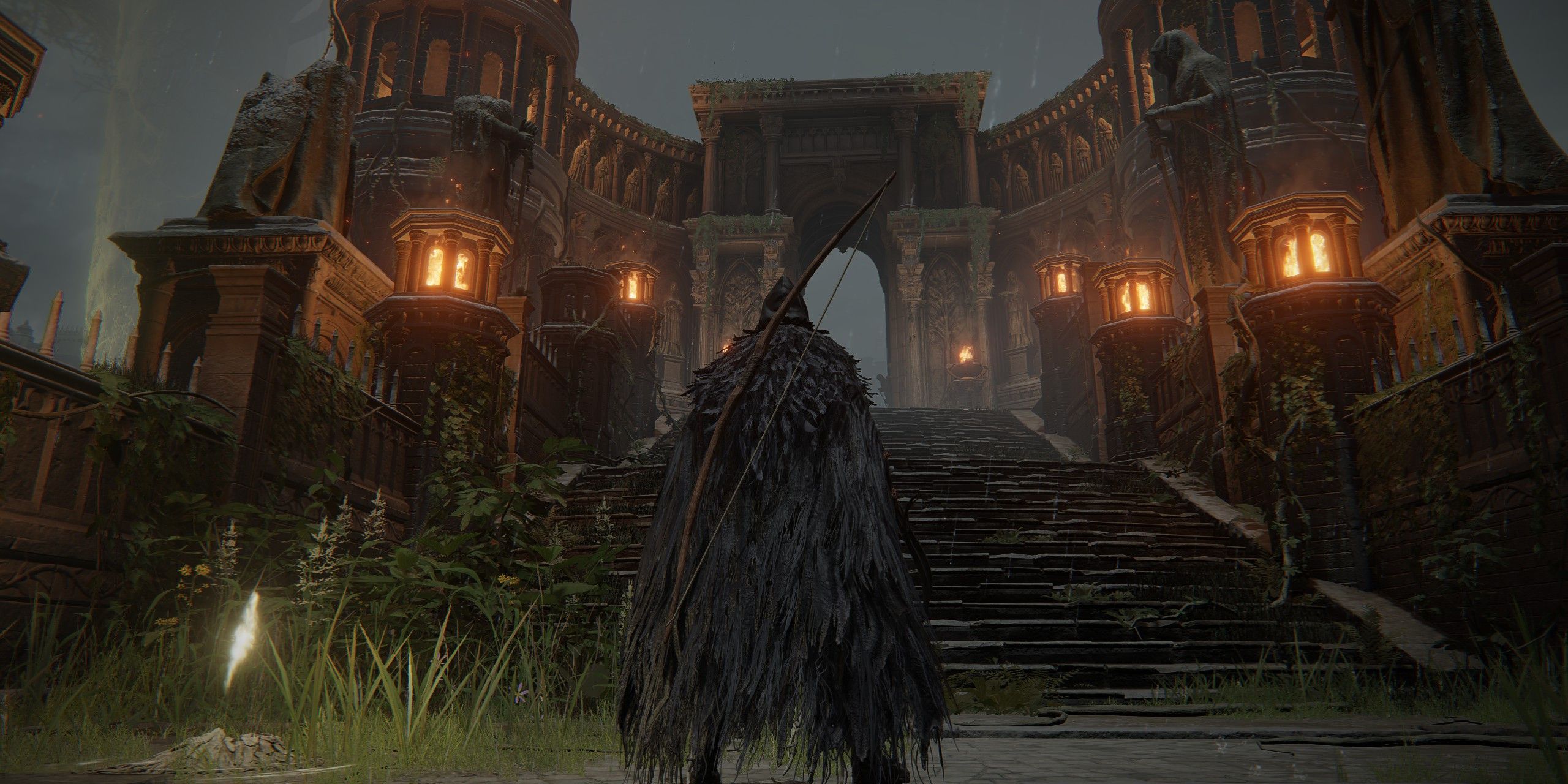World
Elden Ring: The Pros and Cons of an Open-World Map for Future Soulslikes

Highlights
- Elden Ring showcases FromSoftware’s open-world prowess, offering non-linear exploration and hidden secrets in a 100+ hour adventure.
- The game’s organic exploration and variety shine, but criticisms include recycled content and excess traversal that can feel like a chore.
- While Elden Ring is a standout in the open-world genre, its replay value may be lower compared to more concise titles due to its sprawling design.
Elden Ring was a massive leap forward for FromSoftware. Not only is it the studio’s most ambitious and sprawling project to date, but it also proves that FromSoftware can tackle the open-world genre and knock it out of the park on, essentially, the first try.
In many ways, Elden Ring‘s core gameplay mechanics are carried over from the Dark Souls games. But the dizzying scope of The Lands Between plays the biggest role in the theater that is Elden Ring‘s identity: players can engage in non-linear exploration and progression, uncover a multitude of hidden secrets, and fully immerse themselves in a 100-plus-hour playthrough, while something like Dark Souls or Bloodborne may only take 30–40 hours to complete. With so many perks, doubling down on open-world design may seem like the obvious choice for FromSoftware, but there are a few arguments to be made against such mass-adoption within the studio.
Related
Elden Ring: What You Need To Know About New Game Plus
Just like most other FromSoftware games, Elden Ring has a New Game Plus feature – here’s what you need to know about Journey 2.
Post-Elden Ring Open-Worlds: A Double-Edged Sword
In Praise of Elden Ring’s Open-World Design
It’s important to understand just why Elden Ring‘s open-world is so special before arguing against the format in future titles. For one thing, FromSoftware seems to understand the dos and don’ts of open-world design. The game revels in organic exploration, guiding the player with subtle environmental clues rather than waypoints; there is a great deal of variety in the in-game environments, making exploration genuinely rewarding and avoiding stagnation; and there’s a lack (though not a total absence) of egregious copy-paste content, which has long been the bane of the genre.
In a sense, Elden Ring is an evolution of FromSoftware’s game design, rather than a gimmick or some sort of Frankenstein-esque cross-breeding. The best parts of the game—its mystery, environmental storytelling, non-linear exploration, and variety—are buttressed by the choice to go open-world, but they have also been pillars of the company’s games for years. In other words, Elden Ring‘s open-world is simply a tool that elevates FromSoftware’s strengths, so perhaps the formula could be leveraged for similarly great results in the future.
Elden Ring’s Open-World Isn’t Without Its Drawbacks
As previously stated, Elden Ring avoids many open-world pitfalls, but not all. One of the biggest criticisms leveled against the game is the prevalence of recycled content, as several bosses, both major and minor, make repeat appearances throughout The Lands Between. This can rob many moments of their dramatic weight and surprise factor, as it’s underwhelming to fight through a dungeon only to be faced with a repeated boss. This is not an issue that FromSoftware’s previous titles have, as the experience is much more straightforward, with more intentional pacing, which helps with the delivery of certain narrative and gameplay beats.
In a similar vein, it’s worth noting the amount of excess content in Elden Ring. Of course, riding through Limgrave or Caelid, taking in the sights and sounds, is valuable from an atmospheric perspective, but it isn’t very exciting in terms of gameplay. Moreover, the novelty of open-world exploration is diminished on repeat playthroughs, making extended periods of traversal feel a bit like a chore. In general, Elden Ring‘s replay value is less than FromSoftware’s earlier titles, mainly because of its open-world; it loses much of its luster on New Game+, and revisiting optional locations yields little reward, both intrinsically and extrinsically.
Games like Dark Souls can, ironically, offer more unique experiences than Elden Ring in some ways, as repeat playthroughs can present new opportunities and challenges by virtue of a more concise design; experimenting with new builds or playstyles is more approachable, as the time commitment for repeat playthroughs is far less than an open-world game like Elden Ring. FromSoftware may be able to remedy some of these issues in a future open-world game, but they may also be inherent to the open-world genre. In that case, perhaps Elden Ring would be better off as a one-and-done experiment, a novelty, rather than the new standard.










